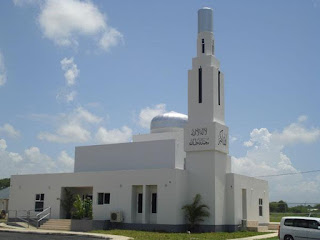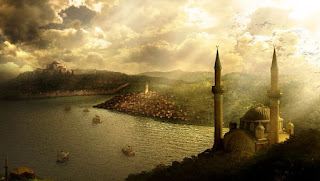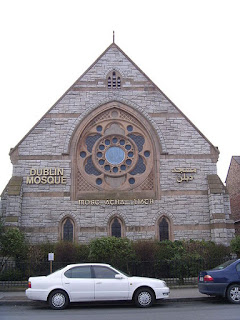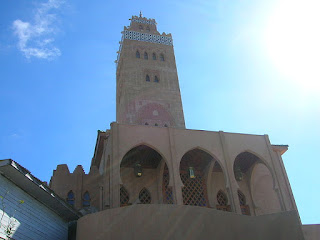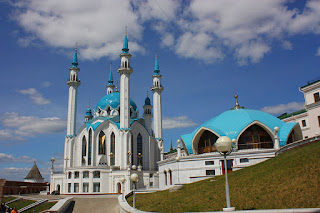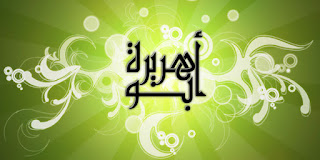The Great Imam
Abu Abdurrahman Ahmed ibn Shuaib ibn Ali ibn Sinan ibn Bahr ibn Dinar Al-Khurusani was born in the year 215 A.H as the great Imam clearly states himself (although some say 255 A.H or 214 A.H) in the famous city of Nasa, situated in Western Asia known at that time as Khurusan which was a famous centre for Islamic Knowledge where millions of Ulama'a were situated and Hadeeth and Fiqh was at its peak. Thus he primarily attended the gatherings and circles of knowledge (known as halqas') in his town and attained knowledge, especially Hadeeth from the Ulama'a. Thereafter his inspiration increased of traveling around the world to seek knowledge from other various scholars of different countries and cities. When he was 20 years old, he started traveling and made his first journey to Qutaibah. He covered the whole Arabian Peninsula seeking knowledge from the Ulama and Muhadditheen of Iraq, Kufa, Hijaz , Syria and Egypt . Finally he decided to stay in Egypt .
Teachers and Students
Hafiz Ibn Hajr Rahimahullahi Alaih says that it is impossible to name and gather all his teachers but notably the most famous ones are: - (1) Ishaq ibn Rahweh (2) Imam Abu Daud Al-Sijistani (author of Sunan Abu Dawood) and (3) Qutaibah ibn Saeed. Although some scholars like Hafiz ibn Hajr Rahimahullah also named Imam Bukhari as his teacher but this is incorrect because Imam Bukhari never met him. However he studied under the famous Huffaz-e-Hadeeth from different countries and cities.
After the great Imam had decided to stay in Egypt he started to lecture, mostly narrating Ahadeeth to the extent that he became famous by the title Hafizul Hadeeth.
Many people would attend his gatherings and many famous Great Scholars became his students and notably the most famous ones are: -
• Imam Abul Qasim Tabrani
• Imam Abubakr Ahmed ibn Muhammad also known as Allamah ibn Sunni
• Sheikh Ali, the son of the famous Muhaddith, Imam Tahawi.
It is also narrated that Imam Tahawi personally narrated from this Imam.
Memory, Piety and other Qualities
He was a man full of taqwa, piety and he possessed a photographic memory too. The famous Sheikh Allamah Zahabi was once asked who has a better memory, Imam Muslim (author of Sahih Muslim) or this great Imam he replied this great Imam. Allamah Zahabi would also say that this great Imam possessed more knowledge in Hadeeth than Imam Muslim, Imam Tirmidhi and Imam Abu Dawood (who was his teacher).
The famous Scholar and Commentator of the Holy Qura'an would say narrating from his teachers that this Great Imam was the most knowledgeable in Egypt .
The Great Imam would put on good clothing according to the Sunnah of our beloved Prophet Muhammad Allah's peace and blessings be upon him and would eat poultry everyday with nabeeth acting on the Sunnah so that he could worship Allah with ease. In fact it is narrated that the man would fast every other day which is classified in the Hadeeth as Saum-u-Daoodi (the fast of Daood A.S).he would worship Allah continuously throughout the nights and teach Hadeeth throughout the day without forgetting that to fulfill the rights of his four wives and treat his slaves like children. The Imam would also perform Hajj nearly every year and would also take part in Jihad. He was a straight forward truthful man and nothing or none could stop him from saying the truth. Allah the Bestower had granted him all the good qualities a person
could possess. At the same time he was an extremely beautiful man and the beauty of his face stayed up to his death. This in reality was the Noor Allah bestows upon certain pious accepted servants.
Test and Death
It is the procedure of this world that when Allah the Almighty grants someone a high status and makes him a great saint then envity makes its way forward, grudges start, hardships appear from nowhere, all as a test from Allah Subhanahu Wata'ala to elevate even further the status of the person. The Great Imam was not exempt from this procedure and just as envity approached Habil it also approached the Great Imam. False accusations were made against him as they were in the past on other Ulama'a. Finally, after facing many hardships, in the month of Dhul-Qa'adah 302 Hijri the great Imam left Egypt and headed towards Darussalaam, Baghdad . But the hardships didn't stop.
The people in Baghdad were more inclined to the Khawarij sect because Banu Umayyah ruled over them. Thus they had grudges against Hadhrat Ali (Karamulahu Wajhahu). They would swear at him in sermons and normal gatherings, whereas on the other hand they exaggerated in the virtues of Sayyidina Muawiyyah (RadhiAllahu Anhu). So, the Imam wrote an article KHASAIS ALI so that the people not only stop swearing at Hadhrat Ali (Karamulahu Wajhahu) but also recognize the true virtues of Hadhrat Ali (Karamulahu Wajhahu) which were also many. When the article was complete he once read it out in a sermon for the benefit of the people but the people became angry and asked him what he had wrote regarding Hadhrat Muawiyyah? He replied I need not write his virtues and excellence for you have exaggerated over the limits and you know his virtues very well, so there is no need! Their anger increased and finally he was whipped a few times but he stayed steadfast and passed the test from Allah which in return has a great reward. Thereafter he intended to go to Makkah Al-Mukarramah but as he arrived in Makkah his time was over and Allah gave him death at the age of 88 in the holy city near the Kaaba and he was buried between Safwa and Marwa. Hafiz ibn Hajr and Allamah Zahabi state that he passed away in Ramalah, Palestine during the journey to Makkah and the body was sent to Makkah and buried between Safwa and Marwa. Wherever the death may have occurred but Muslims will not forget the date Monday 13th of Safr 303(A.H), when the fishes of the sea, the worms inside the earth and the humans altogether felt the loss of the great Imam and WHO WAS THIS GREAT IMAM? IMAM AL-NASAII the famous Muhaddith.
Muqallid or Mujtahid
Imam al-Nasai was a follower of the Shafi Fiqh according to Allamah Subqi, Shah Waliullah, Shah Abdulaziz and many other scholars. The leader of the Ulama'a Allamah Anwar Shah Kashmiri is to the opinion that he was a Hanbali and this has also been stated by Sheikhul Islam Hafiz ibn Taymiyyah but the truth is that he was a Mujtahid more inclined towards the Hanbali Fiqh but many a time would differ from the Hanbali scholars.
Children
As mentioned before that the Imam had four wives but the historians only mention one son whose name is Abdul Kareem, one of the narrators of the Sunan of his father.
The Great Author
The great Imam also left behind many beautiful and beneficial works. Many of which unfortunately are not published but we can without any doubt conclude from what we have understood that his knowledge and excellence is no less than that of Imam Bukhari and Allamah ibn Hazm.
These are a few of his famous works:
• Sunan Al-Kubra.
• Sunan Al-Sugra/Al-Mujtana/Al-Mujtaba.
• Amul Yawmi Wallaylah.
• Kitaby Dufai wal Matrookeen
• Khasais Ali.
• Al-Jurhu wa Ta'adeel.
• Sunan Al-Nisai.
His famous book known as Sunan Al-Nisai which is taught around the globe in every Islamic institute and which possesses a virtue of being one of the Sihah Sitah (the six books generally taught in hadith).
In reality when the Imam had finished compiling Sunan Al-Kubra he presented to the governor of Ramalah so the governor asked him “is it all sahih (are all the narrators 100% authentic)?” he replied in the negative, thus the governor suggested and requested that he compiles another book and gathers in there Sahih Hadeeth. So then he did this and named his book Sunan Al-Sugra (the small Sunan) and Al-Mujtaba and Al-Mujtana (both mean carefully chosen) and this is the Sunan which we know as Sunan Al-Nasai.
In this book he follows the footsteps of Imam Muslim and Imam Bukhari (R.A). Overall most of the Ahadeeth are Sahih and where he narrates a weak narration he clearly clarifies the weakness. Thus it is 3rd in number in the Sihah Sittah after Bukhari and Muslim according to some Ulama'a because of its Sahih narrations. He clearly clarifies the hard words and brings different narrations for one particular Hadeeth as Imam Muslim does. Many Ulama'a have written commentaries on this famous work including Allamah Sindhi, Allamah Suyuti and Hadhrat Sheikhul Hadeeth Moulana Muhammad Zakaria Rahmatullahe alay..
May Allah accept the work of this great Imam and may Allah give us the taufeeq to appreciate his works. AMEEN.
Source :http://www.inter-islam.org/Biographies/imamnasai.html


